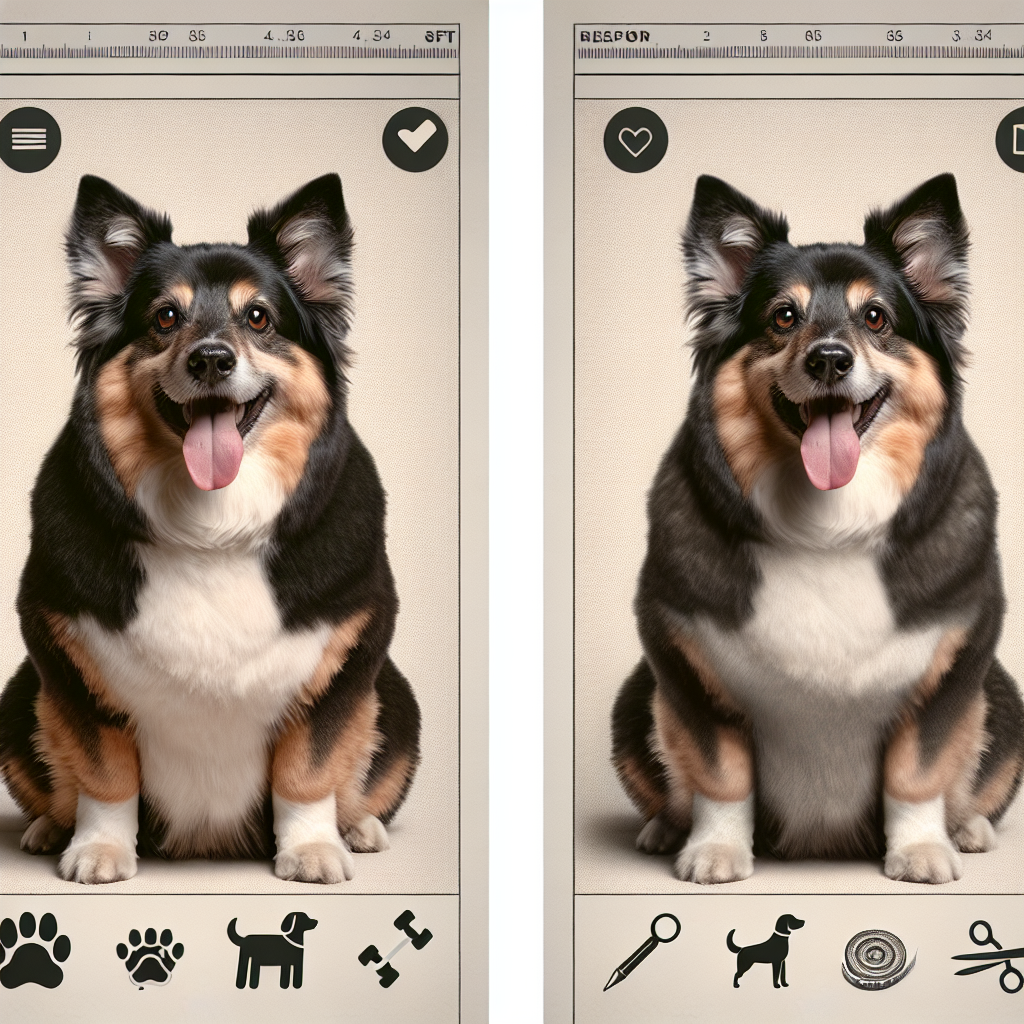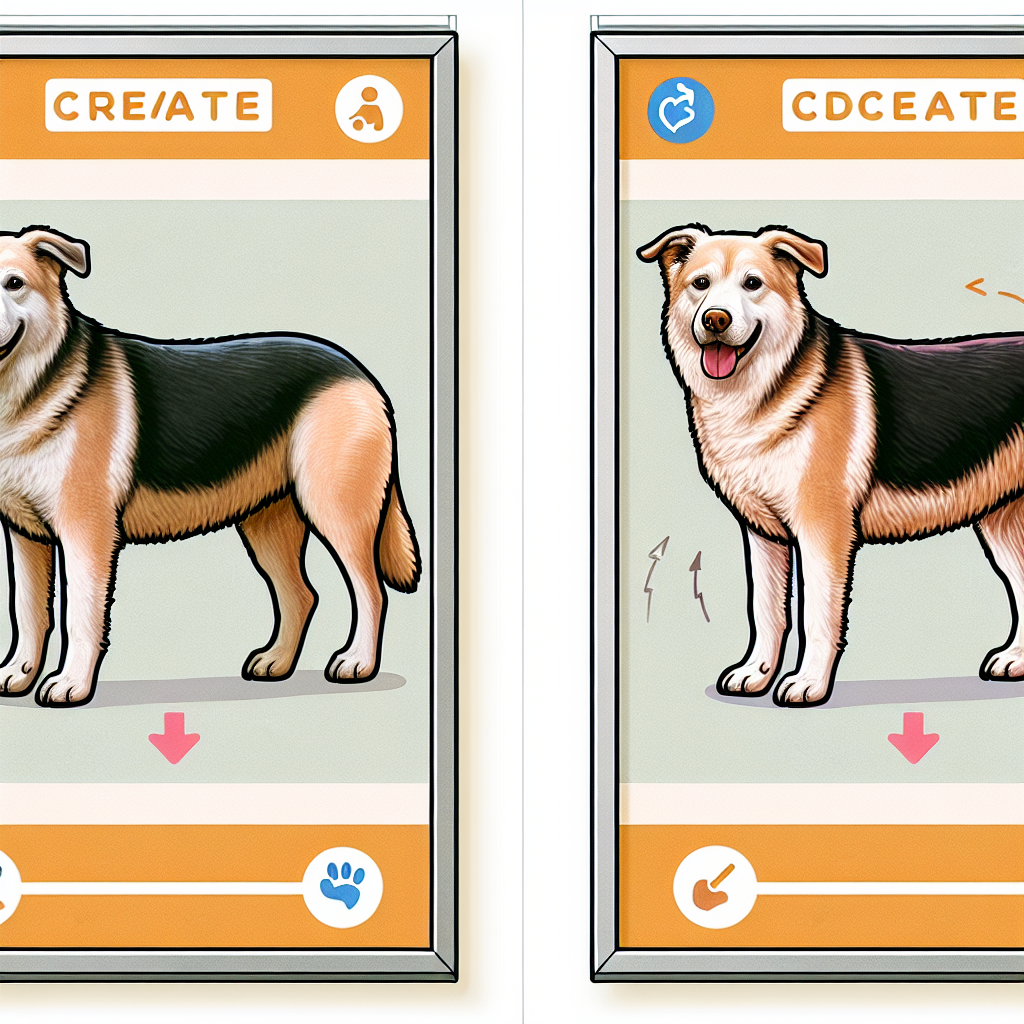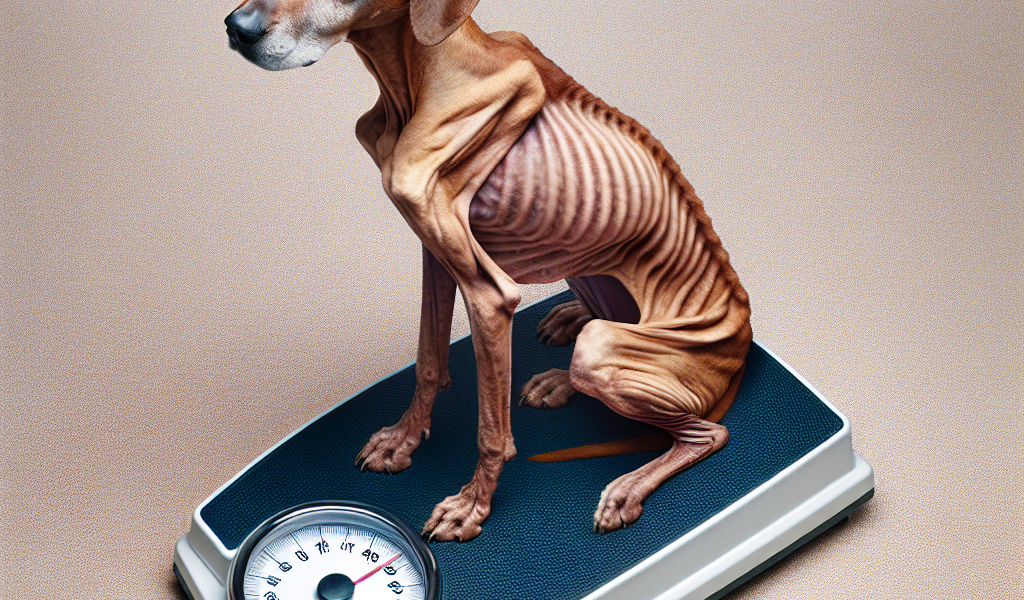Understanding What Can Cause Sudden Weight Loss in Dogs
You casually notice a significant drop in your dog’s weight and a slight panic sets in. No need to worry it prematurely though, as this article, “Understanding What Can Cause sudden weight loss in dogs” offers comprehensive insight into this issue. Knowledge is power, after all. We’re here to provide clarity on what might trigger sudden weight loss in your beloved pet, ranging from dietary changes to underlying health conditions. This isn’t about quick fixes, but rather about learning how to identify probable causes and channeling this knowledge into proper, potentially life-saving, actions.

Overview of Canine Weight Loss
When we speak about ‘sudden canine weight loss’, we’re talking about a noticeable decrease in your dog’s body weight that happens unexpectedly and rapidly. This is often cause for concern as it can be an indicator of various health problems.
Definition of Sudden Canine Weight Loss
Sudden weight loss in dogs can be defined as a rapid decrease in weight that is not intentional or expected. It’s not about your dog shedding a few extra pounds after a diet change or increased exercise. This kind of weight loss is abrupt and often without an obvious reason.
How to Determine if Your Dog Has Lost Weight Suddenly
If you think your dog has suddenly lost weight, you should first verify by conducting a hands-on test at home. You should be able to feel your dog’s ribs, but they should not be visible. A decrease in muscle mass, less fat, and noticeable changes in body shape can also indicate sudden weight loss.
Factors that Regulate Weight in Dogs
Just like in humans, weight in dogs is regulated by a few key factors: diet, physical activity, and underlying health conditions. In general, if your dog is eating a balanced diet and getting regular exercise, his weight should remain stable. However, issues like gastrointestinal diseases, diabetes, or thyroid problems can cause sudden weight loss.
Common Diseases that Lead to Sudden Weight Loss in Dogs
A variety of conditions can trigger sudden weight loss in dogs. Here are some of the most common ones:
Diabetes in Dogs
The overproduction of insulin in dogs can lead to weight loss. Dogs with diabetes are often excessively thirsty, urinate a lot, and eat more but still lose weight.
Heart Disease in Dogs
Heart disease can cause weight loss because it can lead to decreased appetite and increased energy expenditure if your dog’s heart is working extra hard.
Kidney Failure in Dogs
Kidney diseases can lead to a loss of appetite and protein loss through urine, which can result in your dog losing weight.
Cancer in Dogs
Cancer can cause weight loss in dogs due to decreased food intake and the impact of the disease itself on the body’s metabolic rate.
Thyroid Problems in Dogs
Hypothyroidism or a low-active thyroid can lead to weight gain, but hyperthyroidism or an overactive thyroid can cause weight loss.
Gastrointestinal Diseases in Dogs
GI diseases can affect the absorption of nutrients in your dog’s digestive tract. This can cause weight loss even if your dog’s eating habits haven’t changed.

Parasitic Infections and Dog Weight Loss
Parasites in dogs are a common issue and they can lead to weight loss if left untreated.
Understanding Dog Parasites
Parasites in dogs can range from fleas and ticks to internal parasites like worms. These invade and feed on your dog’s body, taking vital nutrients and causing weight loss.
Internal Parasites and Weight Loss
Internal parasites, like roundworms or heartworms, can cause weight loss, diarrhea, and an enlarged abdomen in dogs. They absorb the nutrients that your dog should be getting from their food.
External Parasites and Weight Loss
External parasites, like fleas, mites, or ticks, can cause weight loss due to loss of blood or through the transmission of diseases that can affect your dog’s appetite and metabolism.
Effect of Psychological Distress on Canine Weight
Mental health plays an essential role in your dog’s weight. Just as stress can impact our weight, it can also affect our pets.
Link Between Stress and Weight Loss in Dogs
When dogs are stressed or anxious, their bodies can release the hormone cortisol which can result in a loss of appetite and subsequent weight loss.
Common Stressors for Dogs
Common causes of stress in dogs include major changes in their lives, separation anxiety, or a fear of loud noises like fireworks or thunderstorms.
Managing Stress in Dogs
Managing stress in your dog involves understanding their triggers and working to alleviate them. This could be through behavioral training, medication, or creating a safe and comfortable space for them in your home.

Dentistry Concerns and Weight Loss in Dogs
Dental problems can affect your dog’s ability to eat, which could lead to weight loss.
How Dental Problems can Cause Weight Loss
If your dog has a toothache, broken tooth, or gum disease, it can make eating painful and difficult. As a result, they may eat less and start losing weight.
Common Dental Concerns in Dogs
Common dental problems in dogs that can lead to weight loss include periodontal disease, tooth decay, and oral tumors.
Addressing Dental Issues in Your Dog
Regular dental check-ups with your vet are key to identifying and addressing dental issues in your dog. Proper dental care at home, like teeth brushing or dental chews, can prevent many of these issues.
Roles of Age and Lifestyle in Canine Weight Fluctuations
A dog’s age and lifestyle play significant roles in their weight.
How Age can affect Dog Weight
As dogs age, their metabolism slows down, which can put them at risk for weight gain. However, elder dogs can also lose weight due to age-related diseases or diminished sense of smell and taste.
Lifestyle Factors that Influence Weight Loss
Factors like a dog’s level of activity and diet can influence their weight. A sedentary lifestyle paired with a high-calorie diet can result in weight gain, while more active dogs need more calories to maintain their weight.
Balancing Activity and Diet in Dogs
It’s crucial to find a balance between the amount of food your dog eats and the exercise they get. Consult your vet to figure out how much and what type of food is suitable for your dog.

Importance of Balanced Nutrition for Dogs
Just like us, dogs need a balanced diet to stay healthy and maintain an ideal weight.
Understanding Dog Nutritional Needs
Your dog’s diet needs to include the right balance of proteins, carbohydrates, fats, vitamins, minerals, and water.
Effects of Malnourishment in Dogs
Malnourishment can cause numerous health issues, including weight loss, weak immune system, digestive issues, and poor coat health.
Choosing the Right Dog Food for Your Pet
Choosing the right dog food is important. Make sure it’s high in quality protein and balanced according to your dog’s age, breed, weight, and health.
Quick Weight Loss vs Chronic Weight Loss
Understanding the difference between quick and chronic weight loss is important for identifying potential health concerns.
Defining Quick and Chronic Weight Loss in Dogs
Quick weight loss in dogs refers to an abrupt and noticeable weight loss, whereas chronic weight loss is a gradual decrease in weight over a period of time.
Potential Causes for Quick Weight Loss
Quick weight loss can be caused by factors like severe stress, sudden disease onset, or an abrupt change in diet.
Potential Causes for Chronic Weight Loss
Chronic weight loss in dogs may be due to long-term health conditions like cancer, heart disease, diabetes or gastrointestinal disorders.

Medical Treatment and Management of Canine Weight Loss
If your dog is losing weight quickly and without reason, it’s time to see a vet.
When to see a vet for Dog weight Loss
It’s important to seek professional help if you notice a sudden weight loss in your dog or see other symptoms like lack of energy, change in appetite, or behavioral changes.
Common Treatments for Weight Loss in Dogs
Treatment will depend on the underlying cause. This could range from a change in diet to medications, or in severe cases, your vet might recommend surgery.
Monitoring and Managing Your Dog’s Weight at Home
Regularly weigh your dog, monitor their eating habits, and make sure they’re getting the right amount of exercise. Consult your vet if you see any concerning changes.
Preventing Sudden Weight Loss in Dogs
There are several ways to prevent sudden weight loss in dogs.
Importance of Regular Vet Visits
Routine vet visits can catch early signs of diseases that can lead to severe weight loss.
Proper Diet and Nutrition
Feeding your dog a balanced and high-quality diet can help them maintain a healthy weight and prevent diseases.
Regular Exercise for Dogs
Ensure your dog gets regular exercise. This keeps their muscles toned, joints flexible, and helps maintain a healthy weight.
Mental Health Awareness for Pets
Remember, mental health is just as important. A comfortable, stress-free environment is essential to your dog’s overall wellbeing.

